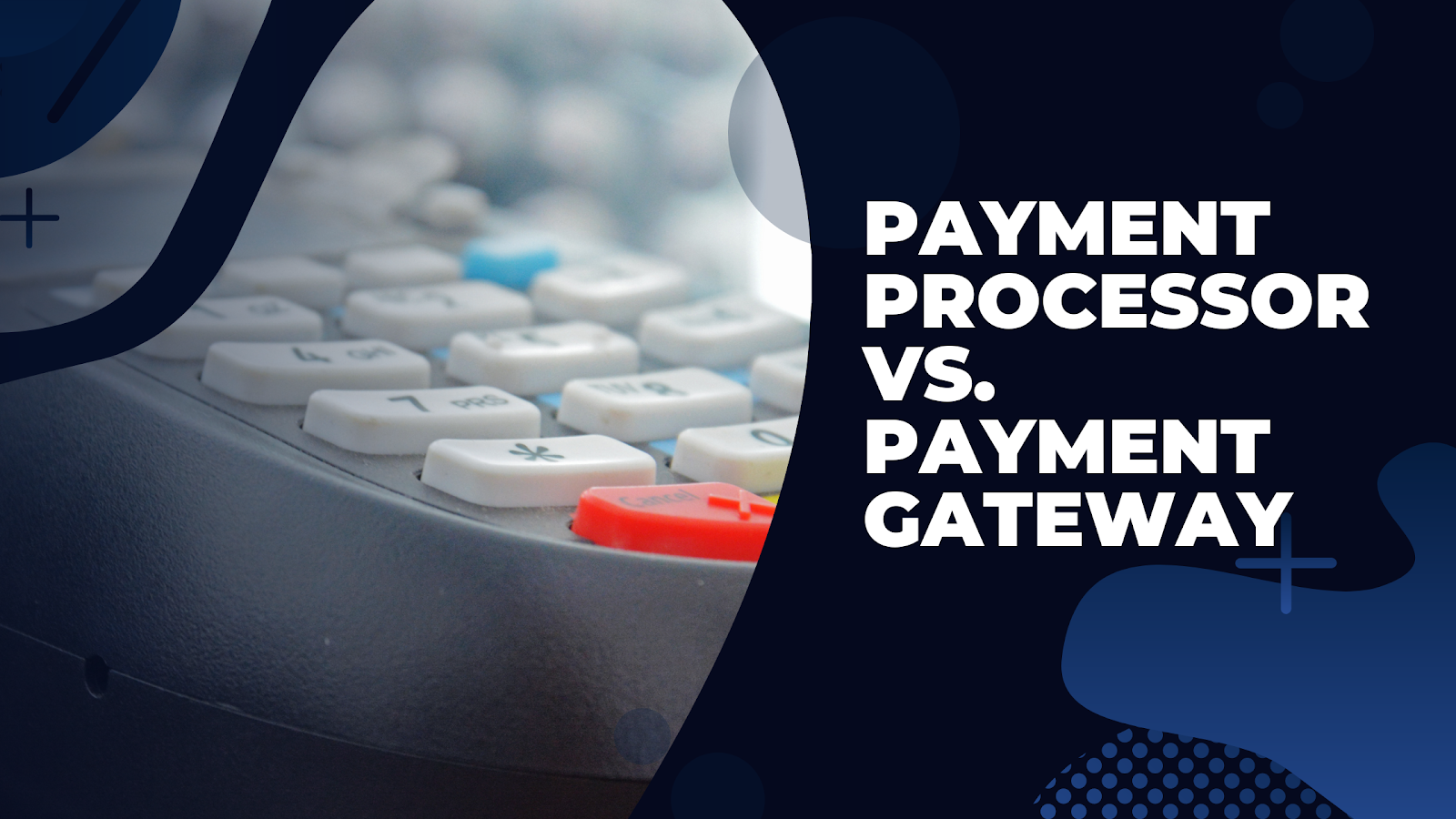If you’re new to online commerce, you’ve probably heard the terms “payment processor” and “payment gateway” being thrown around. But what do these terms mean? This can seem confusing as it is often hard to tell what the difference is. We’ll break down the differences between a payment processor and a payment gateway so you can figure out which one is best for your online store.
What is a payment processor?
A payment processor is a third-party service that allows merchants to accept customer payments. The payment processor handles credit card processing, clearing, and settlement. Payment processors also take care of all the back-end stuff like storing your customer’s data, handling refunds, and managing your merchant account. In essence, payment processors are the glue that holds everything together and makes it possible for you to accept credit cards online or in-store.
When is the Payment Processor best suited?
A payment processor is best suited when you’re starting out and don’t have the capacity to manage your own gateway, have an existing merchant account, need a new gateway to accommodate new payment types at affordable rates, and don’t want to have a merchant account at all.
What is a payment gateway?
A payment gateway is a software service that works with a payment processor to allow customers to make online payments through their credit or debit cards. A payment gateway links a merchant’s website or mobile app to a customer’s credit card or other payment accounts. The gateway communicates with the payment processor to authorize and capture payments. The best way to think about it is this: a payment gateway is like a gate that opens up for cars (or people) to pay for stuff.
When is the Payment gateway best suited?
A payment gateway is the best way to take payments online or on your website if you’re setting up recurring payments, invoicing from a central location, or connecting to a website.
So, what’s the difference? Payment Processor vs. Payment Gateway
The two are often confused and taken as the same, but they are actually quite different. Payment processors provide payment solutions for businesses and merchants, while payment gateways connect your e-commerce website to the card processing networks. Let’s check out the difference;
1. The processor acts as a bank while the gateway is software.
Payment processors act as the intermediaries between you and your customers. It’s like a bank that processes credit card payments for you. The processor charges a minimal fee for this service, usually around 2-3% of the total amount charged.
While payment gateways connect to your website or app to accept payments, you can set up the gateway to accept different types of payments, such as credit cards and debit cards.
2. Payment processors let merchants accept credit and debit cards at their storefronts, online, by phone, or through their websites, while gateways link them to payment processors.
Payment processors are much more than just full-service payment solutions. They help merchants manage their businesses by providing a single point of entry into the payments industry. Gateways are responsible for the security of customer data and transmitting sensitive information between the merchant and payment processor. You can accept payments online or in-person by integrating a gateway with your payment processor. Gateways are a common part of the payment processing infrastructure, but they can be difficult to understand. Gateways connect merchants to their processors via a secure Internet connection, and they can accept payments from multiple channels—such as POS terminals, online storefronts, and call centers—at the same time.
3. Processors may employ gateways, but that’s not necessary.
Processors may employ gateways, but that’s not necessary. Some processors choose to use their proprietary systems instead of third-party solutions. However, if a processor does decide to use a gateway, it usually means they have fewer options available than if they were able to build their system (which is more expensive) because most gateways don’t allow customization options beyond what they offer out-of-the-box.
Which one is right for your business?
The first step in deciding which type of service is right for you is determining if you need one or both services. You can use a gateway if you want to handle every aspect of processing payments on your own or work with a processor who provides all the tools needed to build a custom solution. In contrast, the Payment Processor is your go-to option if you don’t want to deal with the complexity of payments by yourself.
What do they do in tandem?
Both payment processors and payment gateways are important parts of the online world. In fact, they work together in tandem to make sure that payments get through smoothly—to both sides!
Here’s how it works:
A customer comes to your website, chooses their product, and puts it in their cart. They click “check out” on the shopping cart page and are then taken to the payment processor’s form to enter their information. The payment processor will collect this data and send it to the gateway, which will then transfer that data over to your bank account.
So if you want to make sure you get paid, make sure you have a good relationship with your payment processor!
Conclusion: Although they might seem interchangeable, payment processors and payment gateways are two separate components of an online transaction.
All things considered, it is apparent that payment processors and gateways differ significantly. If you are interested in knowing more about this exciting world of online transactions, connect to our experts at Payment Pilot – the leading payment processor.


